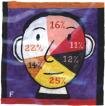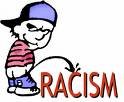We are in the process of becoming a full "Democracy" to return to being as the Founders designed " A Democratic Public"
( if you can ingest the understanding, you can endure the course through change )..
Learning how to be a true democracy is inclusive of learning the varying thin lines than can form within systems, and have blurred the clarity of democracy. then we find how to correct what has been bent in its forms over time.
What do you think of public office?
Do you think it is responsive to the people who cast votes to put people there?
In some ways we as people may need to consider what we want and what we expect from public office - but first to understand more fully the various forms of government- to see how our government works and if it works to support the full scope of our democratic system.
Not just what people campaign about - but to be concerned if they are there to represent what they want, or if they are there to represent the public and what the public wants.
We as a public do not expect officials to be some genius- and neither should they care to pursue being a genius, but just people, who have position to support public concerns and interest. Because public office is always a representation of the public and should communicate with the public before they make decision that impact the public.
It is without a doubt a job that has many challenges we the general public may be unaware of, but when those challenge are faced, then should there be some disclosure in both reasoning and objective- in common terms for the common understanding of people.
Tools or Hindrances:
• "Should all elected officials have a blog" ?
• Should all public officials have a web site- where they field question, survey ideas and address ideas of the public ?
• Should they have a message board- which simplifies there communication, and let the public discuss topic in their district, where they can read and see what the people are thinking ?
Why do we not have these usages of technology as common tools within the localized public office holders.
Benefits or Not Benefits:
They can put up polls for things they plan, things they consider, and things many people may have addressed - and the polls give them public sentiment % figures - then they can make more informed choices and more informed decisions, which are representative of the people- for and of anything that is proposed.
Do you think this same process should apply to School Board Members ?
• Shouldn't the public know what they think on issues ?
• What are choices they consider ?
• What are area concerns they address?
• What changes in the educational system they support and what changes they oppose?
• This gives a public report card on their performance and how people feel they have performed ?
Not everyone will go to a School Board Meeting, but everyone's tax money supports the parish public schools system.
These Technological Tool are over 10-15 years old and they are not utilized by the city elected officials, nor by the educational system- to the extent it can become a benefit. Do you think it's needed?
Can we progress and do we show progress, without the use of technology being utilized in a world where information is king ?
There are many public complaints about Governmental Decisions, Why don't we have nor make use of the interactive platforms to take it to the next level of interactive steps ? Is it wanted ? Do we care to modernize our process to include it ? Are we happy with the current Model?
Much of the things which affect lives are happening long before it gets to the Senate Level- it happens on the city level, but if we have a consensus at the lower level, then we can hold the Senators to be accountable for decision, rather than to be subjected to some of the stands recently made by Senators in the Congress, which does not convey representation of the people as a whole, only a segment of the constituency.
The Public takes back control over government by being informed- and being interactive. then we won't be electing people who are non responsive- and have and show a pattern of ignoring citizens. And our government becomes stronger because they people are more unified about decision being made which impacts lives and lively hood, as well as community, city and state as too, the nation.
We don't elects Kings, nor Kings court - we elect "Leaderships Representation" in a democratic system - and we should not so quickly relinquish that over into any system which functions like an autocratic system.
[ we as the public have to understand the choices being made- and the choices support our interest and our concerns- else we become subject to a simulation of autocratic government ]
Autocratic - characteristic of an absolute ruler or absolute rule; having absolute sovereignty; "an authoritarian regime"; "autocratic government";
Aristocracy is a form of government, in which a few of the most prominent citizens rule. This may be a hereditary elite, or it may be by a system of cooption where a council of prominent citizens add leading soldiers, merchants, land owners, priests, and lawyers to their number.
Aristocracies have most often been hereditary plutocracies . They sometimes include a monarch who although a member of the aristocracy, rules over it as well as over the rest of society.
The term "aristocracy" is derived from the Greek language aristokratia, meaning 'the rule of the best'
Dictatorship: Rule by a single leader who has not been elected and may use force to keep control. In a military dictatorship, the army is in control. Usually, there is little or no attention to public opinion or individual rights.
Totalitarian: Rule by a single political party.
People are forced to do what the government tells them and may also be prevented from leaving the country.
Theocracy: A form of government where the rulers claim to be ruling on behalf of a set of religious ideas, or as direct agents of a deity.
Monarchy: A monarchy has a king or queen, who sometimes has absolute power. Power is passed along through the family
Parliamentary: A parliamentary system is led by representatives of the people. Each is chosen as a member of a political party and remains in power as long as his/her party does
Republic: A republic is led by representatives of the voters. Each is individually chosen for a set period of time.
Anarchy: Anarchy is a situation where there is no government.
This can happen after a civil war in a country, when a government has been destroyed and rival groups are fighting to take its place.
Oligarchy/Plutocracy
A form of government which consists of rule by an elite group who rule in their own interests, especially the accumulation of wealth and privilege. Only certain members of society have a valid voice in the government. This can reflect (but is not limited to) economic interests, a particular religious tradition (theocracy), or familial rule (monarchy)
We live in a democracy, with an autocratic, totalitarian, dictatorship, driven by a theocratic premise, monarchical racial dominance, and a parliamentary divide, by race and wealth, driven by a plutocracy based industry undertone, and a over-riding Theocratic inference - all of which was created and fused to support, engage and manage Slavery, and carried forth within existence of processions of segregation, and prior to we had a democracy that had a undertone of the forms, from one phase to the next upon a segment of the nation. when the nations began to pursue wealth of over equality of person as a human being.
Perform by Religion and race, and some segments performed by and upon one gender over another gender, and some segments form by religious monarchical affiliation- or religion dominating over others.
Rebuilding a true democracy, requires a review of regulations and a replacement of many regulations, and we see the process being engaged to return us back to a government of diplomacy where there is equilibrium within the process, where a democracy functions for all. contortions have been engaged over centuries, and we move in this 21st century to correct the distortion and return the nation to being a democratic republic.
Dismantling the autocratic systems within a democracy is a challenge because the power elite do not want to work within a true democracy.. and the elite want to function via corporations and other means as a plutocracy, and conservatism wants to function as a theocracy, and we've endured 8 years of a party functioning as a totalitarian system.. driven by a theocratic agenda, influenced by a plutocratic industry of corporate influences. and the power elite with a motive of monarchical now we have radio talk show and news media functioning like a parliamentary, and we send our military abroad to perform as the same of dictatorship as that we claim to seek to change into a democracy.
Political Science is such an under studied element in the general public, to know how to get back to being a democracy that functions with a real democratic process, that engages diplomacy in its ways both with party and from state to nation, and from nations to nation.
These are the contortions that disrupted a democracy in its infancy, when the advent of slavery was introduced. and it morphed with a duality until it fused .. And now we are in the process of breaking the components away, that allow us to return to being a true democracy that can honor its constitution.
and we will become again a great nations that is a true Democratic Republic - The United States of America.
The investment in our nation, is under way- to rebuild what has been broken far too long- and yet many factions of systems fight the changes, but with a strong progression of stand, we will transform into a democracy that meets its constitution in true spirit of unison.
Who understand what the task is, and he is willing to make the changes...




